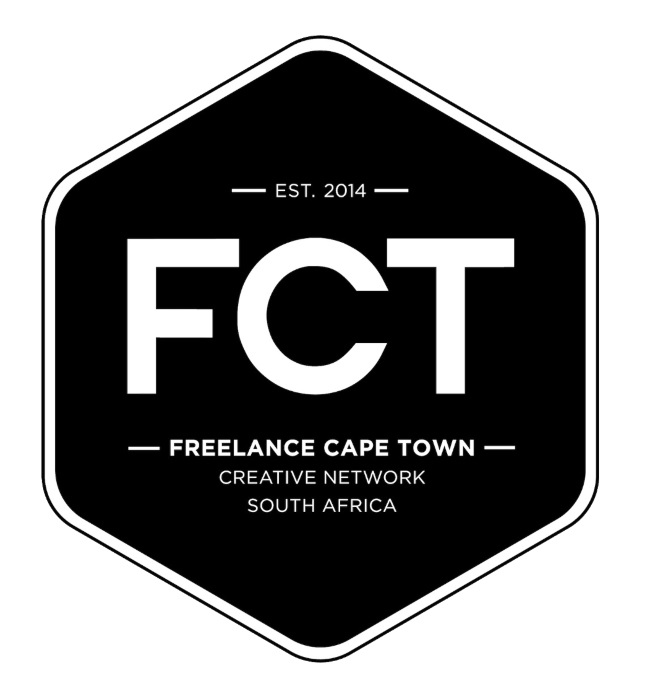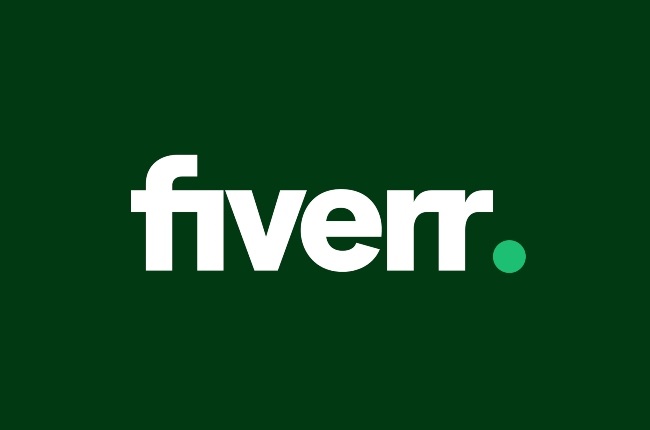
It takes courage to leave the security of a full-time job and a guaranteed monthly salary to go it alone – but over the past year many people have had no choice.
Since the pandemic hit more than three million South Africans have become unemployed.
With new jobs in the formal sector hard to come by, many unemployed and underemployed people are turning to freelancing as a way to earn a living. While for some this shift has been a bit of a struggle, others have been pleasantly surprised to discover that from the comfort of their homes they can work for companies as far afield as Canada, Dubai and Australia – and be richly rewarded for their efforts in US dollars.
If you have access to reliable internet you can work just about anywhere and you can determine your own hours which means a new level of freedom from the 9-5 drill of office life.
We take a look at how you can take matters into your own hands and make a career for yourself as a professional freelancer.
A NEW WAY OF WORKING
Even before the pandemic hit, freelancing was a popular alternative – especially among younger people who prefer working on demand as independent contractors in “the gig economy” as it allows them to do different, interesting things instead of just one type of work.
The number of people freelancing worldwide is currently thought to stand at around 150 million but The Fintech Times newspaper estimates that by 2025 this figure could jump to 520 million.
Max Greyling from NoSweat Work, a freelance and permanent placement platform that operates out of South Africa and the Netherlands, says more companies are employing freelancers because it allows them to save on costs.
They don’t have to worry about providing benefits such as medical aid or paying people when there’s less work available.
And workers also like it because of the freedom and flexibility it offers. “You can find yourself a niche and work hours that suit you better,” says Lynne Smit, chair of the Southern African Freelancers Association. “If you like, you have the option to work in a coffee shop or at home so you can adapt your lifestyle far more easily.”
It sounds like a win-win situation but there are some drawbacks that you need to keep in mind.
• Employers aren’t required to pay a minimum wage
• Lack of benefits like leave and sick leave
• Less job security
• Payments often come in sporadically and if there’s no work available you might struggle financially.
HOW TO STAND OUT FROM THE CROWD
More than 10 000 people are registering profiles every day on a site like Upwork – so you really have to pull out all the stops to get yourself noticed. Most platforms have a guided sign-up process to help you create a profile.
For example, on Upwork you will start off by registering an account and will be asked to supply a photo which can be used on your profile.
You will be prompted to choose an industry you would like to freelance in, then you will be asked to create a profile and list all your skills.
Your profile will then need to go for approval – this is an automated process which uses an algorithm to assess your skills and check that you have enough experience.
Once you’ve been approved, you will need to set your hourly rate and can start applying for projects.
Greyling says you should aim to keep your profile short and concise to make it easier for clients. They should be able to see at a glance who you are and what you can do. A professional portfolio showing you past work is essential so clients can assess the scope and quality of your work, he says.
If you’re applying for a one-off project on some sites you can see how many people you’re competing with. When you’re starting out, try to go for the ones that have received five applications or less. And don’t give up. It might take you several applications before you strike it lucky.
But after you’ve been freelancing for a while, it will become easier because previous employers will be able to vouch for you.
Many sites offer a rating system, similar to the one used by Uber – this is typically displayed on a freelancer’s profile page and is calculated from client feedback.
For example, Fiverr's rating system considers delivery time, customer satisfaction, and service quality.
SETTING YOUR HOURLY RATE
Some jobs are advertised at a set overall fee which will be paid upon completion of the project while others are paid at an hourly rate.
According to Greyling, it’s important to know the full scope of the work when applying for jobs that have a set project fee. “We generally prefer our freelancers working per hour because this allows us to keep track of the hours worked. It is a lot easier to manage expectations with an hourly rate,” he says.
But if you are going to work according to an hourly rate how do you calculate what you need to charge?
According to Mel Muller, director of Kontak Recruitment Agency in Johannesburg, many people make the mistake of using only their previous job or market-related salary to determine payment.
“To set your hourly rate, you would need to take into consideration how billable hours you have in a year – in other words, how much time you have available for work taking into account weekends and holidays.
It’s important to have accurate rates that are market related, Greyling says. “If your rate is too low, you sell yourself short, if your rate is too high, clients won’t be interested.” He says when calculating your rates you should take the amount that you would like to make in a month and divide that by 160 hours (40 hours a week or eight hours a day).
READ MORE | Your money: Working from home – what can claim?
For example, if you want to make R20 000 a month, then you would say R20 000/160 = R125 per hour.
He says the NoSweat website features a tool to help you calculate. It will also allow you to see the average rate at which your peers in the same field are willing to work.
We generally think that we work a full 160 hours a month but as a freelancer part of that time will be dedicated to administrative tasks, such as invoicing or trying to find work, and this needs to be factored into your rates, he says.
Smit says you also need to take leave into account. For instance, if you want to take 10 days leave a year you need to factor this into what you need to earn every month so you don’t end up without income when you take your holiday.
If you are working on a solo project, the companies you work for won’t generally mind when you do the work, so long as it’s completed in a set timeframe.
But if it’s a project that sees you working with a team there may be set hours. And if it’s an international job you may need to work in the evening and on local public holidays.
BEST FREELANCE WEBSITES
upwork.com
With over 1,5 million users, upwork.com is one of the largest international online platforms. It works a bit like an online dating service – freelancers post work profiles on the site in the hope that it will catch the eye of potential clients. If offers scope for short and long-term projects, hourly or per-project work as well as expert-level and entry-level engagements in numerous fields.
Which professions does it cover? Graphic design, video editing, copywriting, social media advertising, bookkeepers and many more.
What it costs: Freelancers are charged between 5-20% commission, depending on the size of the job. Invoicing is done via Upwork and once payment is made by a client the commission is automatically deducted.
nosweat.work
It offers both short-term and permanent posts, acting as go-between for companies and prospective contractors. Once you’ve registered you will be emailed suitable jobs in your field. If you apply for a job the client will be able to see your profile. If they’re interested in hiring you, nosweat.work will negotiate all the details.
Which professions does it cover? Copywriting, editing, proofreading and film editing.
What it costs: No fees are paid by the freelancer. Clients pay a 13% commission for freelance jobs and 10% of annual cost to company on permanent placements.
freelancecapetown.com
With over 1 000 registered clients, Freelance Cape Town offers lots of scope for local freelancers.
Which professions does it cover? It covers just about every profession – from teachers, chefs, construction workers and web developers to fashion designers, photographers and accountants.
What it costs: Freelancers pay a subscription fee for their professional profile to appear on the site. A six-month subscription will cost R299.
Fiverr.com
This Israeli platform showcases the skills of freelancers from around the world. On its website it claims that someone from its deep pool of talent lands a job every four seconds with fees paid for projects ranging between US$5 (R73) and $10 000 (R146 000).
Which professions does it focus on? It offers over 200 categories of work including online tutoring, Powerpoint presentation creation, fitness and cooking lessons, data entry, packaging design, graphics digital marketing, admin, voice over work, writing and translation and business.
it costs: Contractors pay a 20% commission on each job they land.
WHAT YOU NEED TO KNOW ABOUT TAX
If you do freelance work – either directly for a SA company or through a local freelance platform, you can expect to have 25% tax taken off your earnings which will be paid directly to Sars.
This might be more than you paid previously when you had a permanent job and Lynne Smit, chair of the Southern African Freelancers Association, warns that it can affect your immediate cash flow – but she says when you file your annual tax return there’s a good chance you’ll get money back.
If you secure jobs through Upwork or another international platform then no tax will be deducted and it will be up to you to make payments to Sars. You will need to register as a provisional taxpayer and file at least two provisional tax returns every year along with accompanying payments, as well as an annual return.
As a freelancer you can get a tax break for expenses such as office space – for example, if you have a home office you can claim a percentage of your rental or bond back from Sars. You can also claim a deduction on depreciating assets such as the laptop or iPad you use for work or other things you need to do your job such as stationery and office equipment.
But Smit warns you need to keep detailed records so you can justify these deductions.
Greyling adds that it can get complicated. “We advise that you speak to a tax practitioner to set yourself up and help with deductions,” he says.
SOURCES: BUSINESSINSIDER.COM, ENTREPRENEURSOUTHAFRICA.COM UPWORK.COM, SHOPPINGFEEDER.COM, OFFERZEN.COM, THEBALANCESMB.COM, THEBALANCECAREERS.COM, BUSINESS.COM, BIZCOMMUNITY.COM, JOURNALISM.CO.UK., FINTECHTIMES.COM, NICHCEMARKET.CO.ZA




 Publications
Publications
 Partners
Partners






















